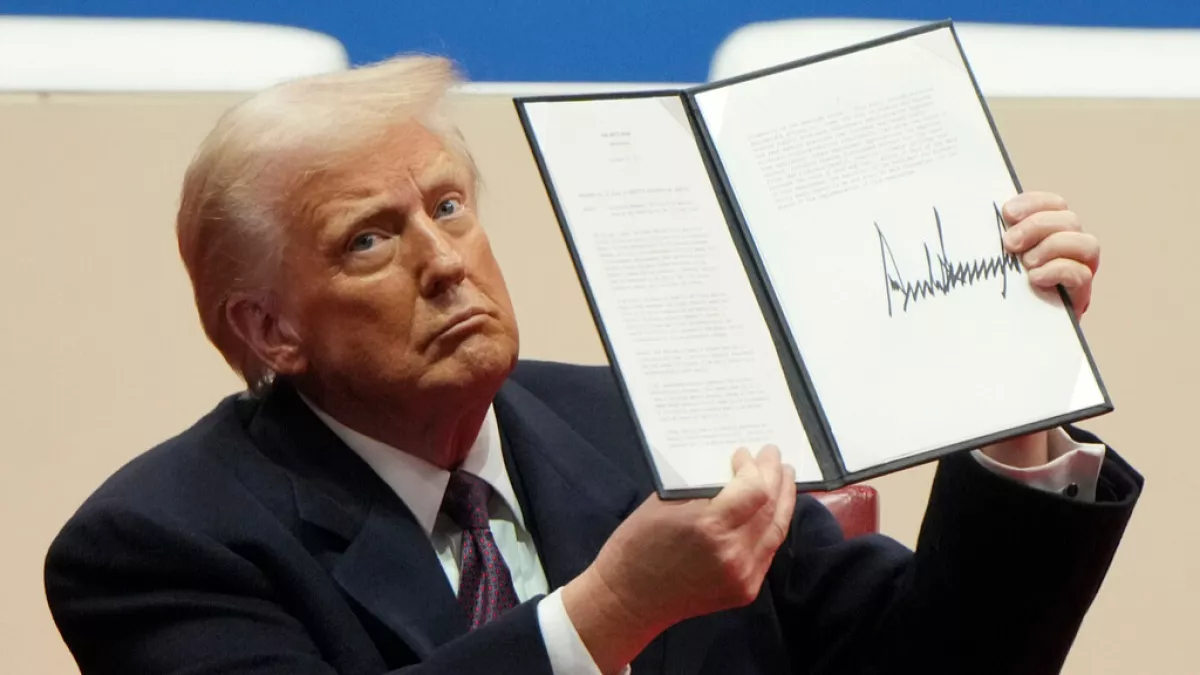In January 2025, President Donald Trump issued an executive order suspending U.S. foreign aid for 90 days. The decision has triggered widespread panic and uncertainty, especially in Africa, where critical programs depend on U.S. funding. The move, framed as a “review” of spending, has already resulted in halted healthcare services, loss of livelihoods, and threats to the survival of millions. While the Trump administration claims the suspension is necessary to assess the effectiveness of aid distribution, the reality is far more dire—this decision may cost lives.
Even more concerning is the administration’s attempt to suppress dissent by discouraging nonprofit organizations from voicing their concerns to the media. This deliberate effort to silence those directly affected exacerbates the crisis, leaving millions vulnerable without recourse. The nonprofit sector, already under attack, is now fighting not just for funds but for the ability to even advocate for those in desperate need.
The Foreign Aid Freeze and Its Global Impact
The United States is the world’s largest single donor of foreign aid. In 2023 alone, it allocated approximately $60 billion to humanitarian and development programs across the globe. These funds support critical initiatives in health, education, agriculture, and economic development. The sudden suspension of aid disrupts these programs, leaving millions without access to essential services.
One of the most affected areas is global health. The U.S. has historically been a leader in funding disease control efforts, particularly through initiatives like the President’s Emergency Plan for AIDS Relief (PEPFAR), which provides life-saving HIV treatment to over 20 million people worldwide. The aid freeze has left clinics unable to purchase antiretroviral drugs, putting millions at risk of losing access to their treatment. Without consistent medication, HIV patients face worsening health conditions, increased transmission rates, and even death.
Other health crises are also impacted. Efforts to combat malaria, tuberculosis, and polio in African nations are now at risk due to funding cuts. The World Health Organization (WHO) and the Africa Centres for Disease Control and Prevention (Africa CDC) have raised alarms about the potential for disease outbreaks if health initiatives are halted.
Nigeria: A Nation in Crisis
Among the African nations affected, Nigeria also stands out as one of the hardest hit. The country has long relied on U.S. aid for healthcare programs, economic development, and humanitarian assistance. The suspension of funding directly affects:
HIV/AIDS Treatment and Prevention: As of 2019, Nigeria was fourth in the world for HIV burden. PEPFAR has been instrumental in ensuring access to antiretroviral therapy, preventing mother-to-child transmission, and supporting awareness campaigns. The aid freeze threatens to reverse years of progress, putting millions at risk.
Malaria and Tuberculosis Programs: U.S. aid supports Nigeria’s fight against malaria, one of the leading causes of death in the country. The sudden disruption of funding will lead to medication shortages, increased infections, and avoidable deaths.
Food and Nutrition Support: Over 25 million Nigerians face food insecurity, and U.S. aid programs provide emergency food assistance and agricultural support. The suspension of aid will worsen malnutrition and increase mortality rates, especially among children.
Employment and Livelihoods: Thousands of Nigerians are employed through U.S.-funded programs. With aid cut off, many NGOs are being forced to lay off workers, leading to rising unemployment and deepening economic hardship.
The Nonprofit Sector Under Attack
The Trump administration’s move to freeze foreign aid is not just about policy; it is an attack on the nonprofit sector. Many organizations working on the ground rely almost entirely on U.S. funding to run their programs. By halting aid, the administration is effectively crippling these organizations and limiting their ability to provide life-saving services.
Adding insult to injury, the administration has issued directives discouraging nonprofits from speaking to the media about the impact of the aid freeze. This attempt to silence advocacy groups is a blatant suppression of free speech and transparency. NGOs that rely on U.S. aid are now caught in a difficult position—if they speak out, they risk losing future funding, but if they remain silent, millions of lives could be lost due to inaction.
The nonprofit sector is already struggling under increasing political pressure. The Trump administration has previously attempted to cut funding for international organizations, and this latest move reinforces a pattern of hostility toward humanitarian efforts. The message is clear: helping vulnerable populations is no longer a priority.
Aid That Has Already Been Approved is Being Withheld
Perhaps the most infuriating aspect of the aid freeze is that the funds being withheld have already been authorized by Congress. The U.S. legislative branch approved these funds for international aid, recognizing the urgent need for continued support. By unilaterally blocking their distribution, the Trump administration is defying the intent of Congress and endangering lives.
Foreign aid is not charity—it is an investment in global stability, security, and prosperity. The funding supports healthcare systems, disaster relief, and economic growth in developing nations, which in turn fosters international stability. The arbitrary withholding of these funds undermines the credibility of U.S. commitments and damages relationships with allies and partner nations.
The Difference Between Life and Death
Foreign aid is not just about politics—it is about survival. The funds being withheld represent the difference between life and death for millions of people. Consider the following:
HIV/AIDS Patients: Without access to treatment, HIV patients face rapid disease progression and early death.
Children with Malnutrition: Emergency food aid programs prevent starvation and help children survive severe malnutrition. With the suspension, famine-stricken regions will see increased mortality rates.
Conflict-Affected Regions: In areas suffering from war and displacement, U.S. aid provides emergency shelter, medical care, and education for refugees. Cutting off this assistance leaves vulnerable populations defenseless.
What Comes Next?
The international community is watching closely as the Trump administration continues its review of foreign aid. While the official suspension is set for 90 days, there is growing concern that it may become a permanent policy shift. If this happens, the consequences will be catastrophic, particularly for Africa.
There are three possible outcomes:
The Aid is Released: If public pressure mounts and lawmakers intervene, the Trump administration may be forced to release the frozen funds. This would provide a much-needed lifeline for affected programs.
The Suspension is Extended: If the administration doubles down, aid programs could face long-term disruptions, leading to preventable deaths and increased instability.
Aid Cuts Become Permanent: A worst-case scenario in which the U.S. drastically reduces or eliminates foreign aid altogether, leaving millions in crisis.
The world cannot afford to wait. Advocacy groups, humanitarian organizations, and concerned citizens must continue to push for the immediate release of foreign aid. Congress must take action to override the executive order and ensure that already authorized funds reach those in need.
The U.S. foreign aid freeze is a humanitarian disaster in the making. By halting funding for critical programs, the Trump administration is playing politics with human lives. Africa, and particularly Nigeria, stands to suffer the most from this reckless decision. The nonprofit sector, already under attack, is being forced into silence, while millions of vulnerable people are left to fend for themselves.

